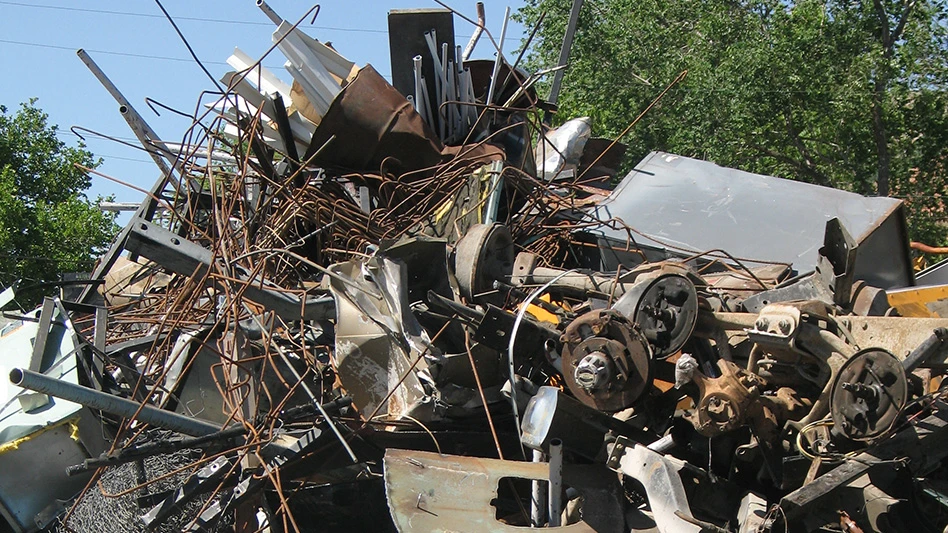
Recycling Today archives
Last October, a seldom seen phenomenon occurred in the ferrous scrap market when the average price paid per ton for shredded scrap in the United States surpassed the average price paid for prompt grades, such as No. 1 busheling.
According to Raw Material Data Aggregation Service (RMDAS) transaction pricing gathered by Pittsburgh-based Management Science Associates Inc. (MSA), domestic mills paid an average of $375 per ton for shred last October while paying just $372 for scrap within the RMDAS prompt industrial composite grade.
That narrow difference between these two grades remained through February, according to RMDAS. Beginning in March and running through August, however, prompt scrap began ascending to its customary perch, trading from $44 to $76 per ton higher than shred during that stretch.
Newly released RMDAS figures for September, however, point to a second consecutive autumn demonstrating a narrowing of the price gap between the two grades.
A leading factor in the relative greater value of obsolete grades almost certainly ties into lower scale pricing that started this June.
The value of all grades dropped from $35 to $55 per ton in June, beginning a pricing trough that remains. Recyclers contacted by Recycling Today this summer have almost unanimously said their inbound flows of scrap have been hampered by the lower prices, often citing a volume drop of around 20 percent.
No. 1 heavy melting steel (HMS), along with shred consisting largely of obsolete scrap, remained some $50 to $70 per ton below the other two grades in September except in one RMDAS region: the South. In that part of the country, HMS is trading at just $28 per ton less than shred and $42 less than prompt scrap.
Another factor that could cause the grades to diverge again would be unwelcome by many scrap processors: the continuation of the labor-management standoff between the United Auto Workers (UAW) and automakers Ford, General Motors and Stellantis. That circumstance would almost certainly see reduced activity at stamping plants, from where many prompt grades emanate.
During a recent online event held by the Washington-based Institute of Scrap Recycling Industries (ISRI), commodities analyst Jason Schenker of Texas-based Prestige Economics said the steel sector likely would suffer from reduced demand if the dispute continues, as reported by Davis Index.
As noted by Schenker and reported on by Recycling Today, Pittsburgh-based U.S. Steel already has decided to idle a blast furnace in Illinois in anticipation of reduced demand from the auto sector.
Latest from Construction & Demolition Recycling
- LRS diverts 330,000 tons of recyclable material in 2024
- Elevating industry standards
- Takeuchi adds dealer locations in central US
- Tariffs target steel exporters Brazil, Canada and South Korea
- Toyota-Tsusho completes acquisition of Radius Recycling
- Motion opens new branch in Quebec
- Terex M515 trommel designed for rip rap production
- Lippmann adds dealer in Pacific Northwest





